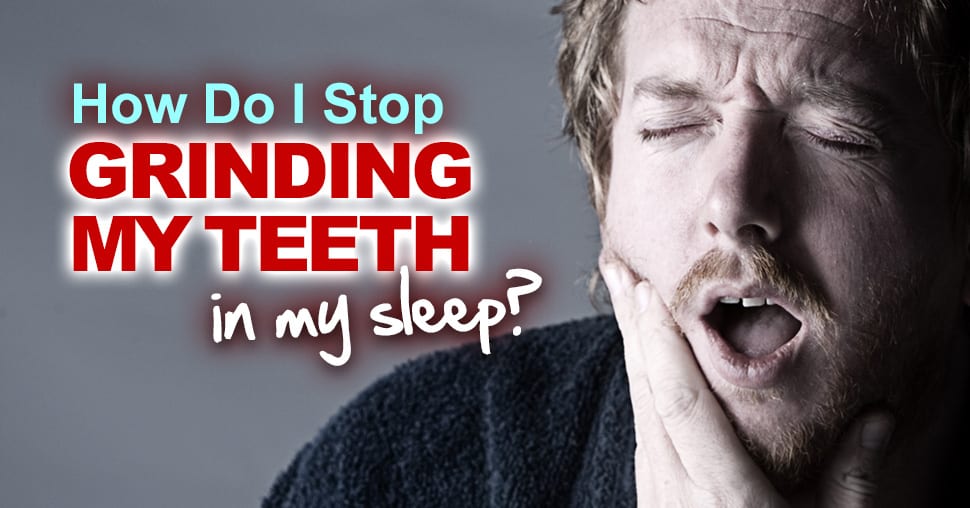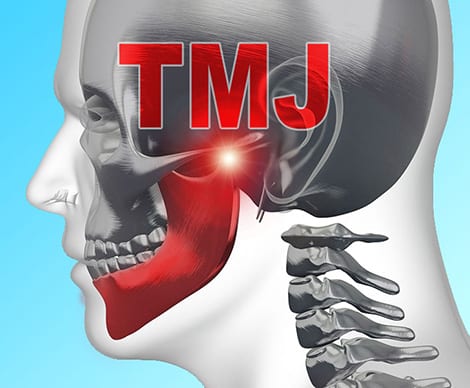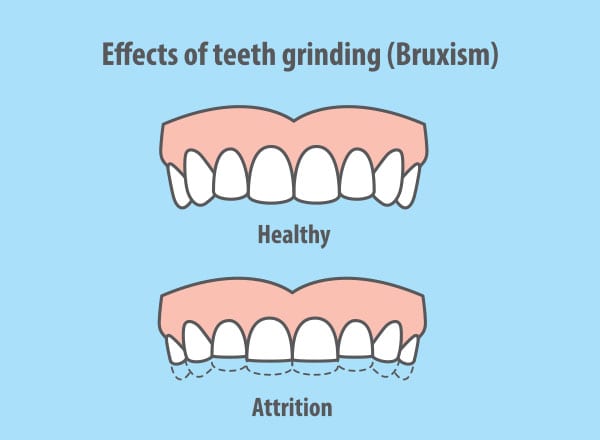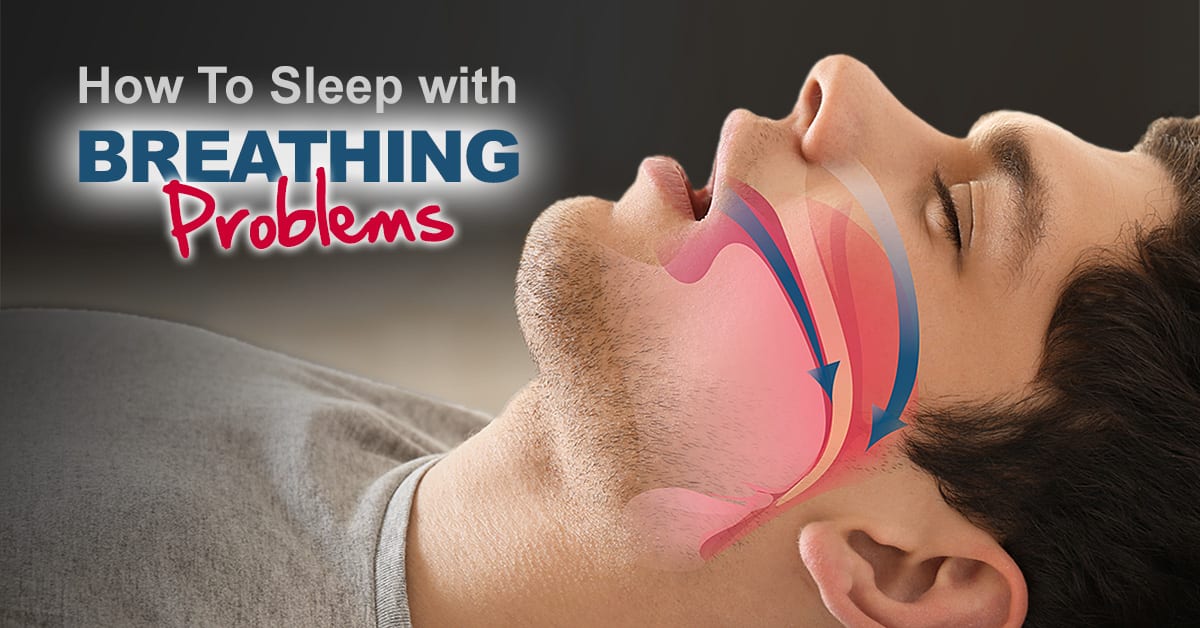
Protecting your teeth from nighttime clenching
Do you regularly grind your teeth or are kept awake at night by someone that does? It is estimated that 40 million Americans grind or clench their teeth while sleeping. Teeth grinding (or Bruxism) can be conscious, but more often done unconsciously when sleeping. Why people do this is varied. A study in Finland found that 70% of teeth grinding in participants was a result of day time stresses, but can also be due to sleep apnea, misaligned teeth or even too much caffeine. Age can play its part also, the American Academy of Oral Medicine found that it was least common in older adults and more frequent in children and young adults. Whatever the cause, the impacts can be far more than just an irritating noise!
Does clenching your teeth cause problems?
The short answer to this is YES! One of the most common effects of grinding teeth is persistent and re-occurring headaches, usually in the morning. Facial muscular pain can also occur due to the tension that is placed on the muscles when teeth grinding. Temporomandibular joint syndrome (TMJ syndrome) is often associated with teeth grinding which can cause extreme pain at the focus point of this joint. In addition to this teeth clenching can also lead to damage within your mouth. Fractured teeth, bone damage, the wearing away of crowns and bridges, and the receding of gums can all result from teeth grinding. None of these effects are desired but luckily there are several steps that can be taken to limit the impact and reduce the frequency and intensity of the grind!



How do I stop clenching my teeth?
- Reduce your stress – as we know that stress often is a major cause of bruxism, by using relaxation techniques such as meditation or yoga, it is often found that the level of teeth grinding can be reduced significantly.
- Heat – placing a warm cloth next to your jaw for a few minutes immediately before bed can relax the facial muscles and so reduce tension and teeth grinding.
- Avoid caffeine and alcohol – it is known that both of these will increase the likely hood of teeth grinding, so avoiding these where possible will reduce its impact.
- Don’t chew your pen! – chewing on hard items such as pens and pencils gets your jaw used to clenching and so it is more likely to do so when you sleep. Save your teeth (and your pens) and stop doing it!
- Botox – as strange as it may sound, Botox is often used as a treatment in more severe cases of bruxism. It has the effect of relaxing the muscles around the jaw which can hold tension causing the grinding.
Do mouthguards help with teeth grinding?
- A mouthguard for sleeping is probably the quickest and easiest way to reduce the impact of teeth grinding. They are a type of occlusal splint and work by providing a protective cushioning layer between the upper and low teeth which prevents them from grinding together when you sleep. There are 2 main types of mouth guard for grinding teeth - purchased over the counter or a custom fit teeth guard from a dentist. Due to the difference in price it is usually advised to try an over the counter one first which can be molded and trimmed to fit. Most times this will stop you grinding your teeth at night for minimal cost, however if that does not reduce the impact enough, then go to the expense of a custom molded mouthguard from your dentist.
- Can you grind through a night guard? Yes you could still do the grinding motion whilst wearing a teeth guard, but the movement will be reduced and the teeth will be protected and so the impacts will be greatly reduced. As grinding teeth puts 200 lb of pressure per square inch on your molars, protection is essential!
- Are dental night guards comfortable? Yes, they should be! With moldable & trimmable night guards for teeth being widely available online and in stores there is no longer any need to be awoken by irritation from an ill-fitting guard.



How to mold a mouthguard in boiling water for a perfect fit
- Bring a small pot of water to a full boil. Also place a container of cold water nearby, deep enough to dip the mouth guard into.
- Fully submerge the mouth guard into the boiling water for 30 seconds. When the mouth guard begins to curl, carefully remove with tongs and quickly dip it into the cold water for 1 second.
- Immediately place the mouth guard around the upper teeth. The mouth guard will be warm but will not burn. Instantly secure the guard by pressing your tongue against the back of the upper teeth and then press the back of the mouth guard with your thumbs into the upper teeth. Then with your lips pressed together, bite gently and suck all the air and water out, at the same time pressing gently around the front and sides of your upper lip for at least 30 seconds, until a tight fit forms around upper teeth.
- Carefully remove the mouth guard and place into cold water for 10 minutes to set. If you do not get a tight fit first time, repeat the procedure.
- If necessary, the guard can be trimmed slightly shorter at the back with a sharp pair of scissors.
IMPORTANT: off-the-shelf dental mouth guards are not for use with braces. If you experience any discomfort or sensitization, stop using the guard and consult your dental surgeon or orthodontist.



Products recommended to help reduce teeth grinding at night:
Non-Moldable Dental Night Guards (2 pack)
Anti teeth grinding dental guards - ready to use - non moldable. Use for upper or lower jaw, relieves pain from TMJ and Bruxism.
Guide Price: approx $5
Moldable Dental Night Guards (4 pack)
Mouth guards for grinding teeth (4 pack). Professional moldable dental night guards with free retainer case, best for TMJ and Bruxism.
Guide Price: approx $12



Custom Fitted Bespoke Dental Night Guard
Fully customizable mouth guard, choose from soft, semi-hard, to all hard night guard. Requires simple 5 minute DIY teeth impression process.
Guide Price: approx $100














